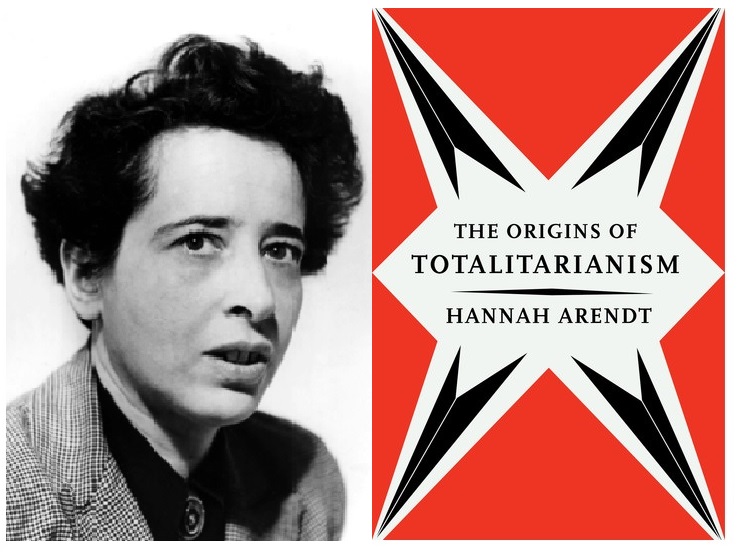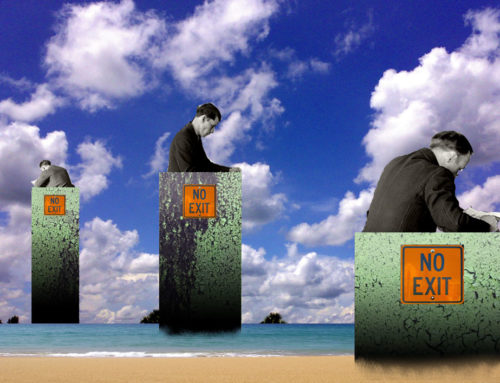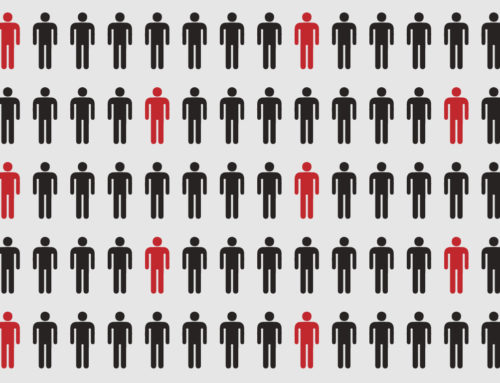By: David Antonini from 1000-Word Philosophy
Hannah Arendt (1906-1975), born in Hanover, Germany, was a public intellectual, refugee, and observer of European and American politics. She is especially known for her interpretation of the events that led to the rise of totalitarianism in the twentieth century.
Arendt studied under German philosophers Martin Heidegger and Karl Jaspers and set out to pursue a path as an academic, writing a dissertation on St. Augustine. However, Hitler, the Nazi regime’s rise to power, and the bloody Holocaust forever changed her life. Being Jewish, Arendt was forced to flee the country, seeking refuge in France and eventually the United States. After living through the outbreak of WWII, Arendt devoted the rest of her life to writing about politics, although less in a traditional philosophical sense and more in the vein of a political observer, interpreting events of the twentieth century.
This essay explains some central insights of her political thought and how she developed these concepts to overcome the loss of politics as public debate in Nazi Germany.
1. Totalitarianism and the Loss of Public Debate
Arendt understands “politics” as public debate by a community about meaningful aspects of their shared life together. She witnessed the collapse of politics, in this sense, under Nazi totalitarianism. This form of rule seeks to diminish public debate by making it a criminal act to criticize the regime. Arendt sought to understand the rise of this unprecedented form of government, and to defend public debate against threats to its existence.
Throughout her writings Arendt defended the importance of public debate. She had witnessed with German citizens in the 1930’s and 40’s what could happen in its absence: the substitution of a fabricated reality based on a leader’s vision, accepted by seemingly well-intentioned citizens. Without public debate, the ruling regime is free to construct a false narrative about “reality,” perpetuate that narrative, and maintain power because there is nothing to compete with it.
2. “The Human Condition” and Plurality
Arendt’s well-known 1958 text The Human Condition contains some of her central insights about politics, especially her concept of human plurality. For Arendt, plurality is an existential condition of human life: we are equal insofar as we are human beings but distinct because no human being is like any other. Our distinctness provides us with a perspective that cannot be fully understood by anyone else, yet our equality means that, as a presupposition of communication, we assume the capacity for speech and reason in each other.
Based on plurality, politics then is the place and activity of shared communication based on the distinct perspectives of equal human beings. When we engage in political life, we seek to communicate how things look from our distinct perspectives, while others do the same. For Arendt, the activity of publicly addressing one another about how things appear from our distinct perspectives is the lifeblood of politics. Sharing our perspectives with to others is done in the public space, which must be preserved if democratic politics is to remain a viable possibility. This public space was destroyed under totalitarian regimes in the twentieth century.
3. Power through Civil Disobedience
How does Arendt argue we preserve the public space?
The answer lies in how Arendt rethinks the concept of power. As a political concept, we often associate power with rulers, governments, and politicians. Rulers or politicians have or hold power, as if power is something to be possessed. We often hear the phrase that politicians are not concerned about their constituents but about “staying in power.”
Arendt, however, considers legitimate power as something that exists between citizens as they engage in political action together, whereas power wielded by rulers through the use of terror and violence is illegitimate. She argues that “power springs upbetween men when they act together and vanishes the moment they disperse.”[1] So, when a group of human beings decides to act for a specific political purpose, power exists between them as they collaborate together to achieve a political aim: we might say that it is power that “holds them together” as a group and not just a collection of disparate individuals.[2]
For Arendt, an exemplary moment of power preserving the public space is the act of civil disobedience, especially the various movements during the turbulent decades of the mid twentieth-century in the United States, on which Arendt wrote.[3] When citizens gather together to protest an unjust law, power exists between them. The public action to protest unjust laws is a manifestation of the public space discussed above. To think of power as Arendt does means that those engaged in civil disobedience are attempting to reclaim the public space of debate. Through enacting unjust laws, government has abused the legitimacy it has been entrusted with: through civil disobedience, citizens try to reclaim that legitimacy.
Reclaiming the public space of debate is an effective mechanism for citizens when they believe a government has lost its legitimacy. Robust public debate in many forms ensures that it is not merely the ruling regime that defines the parameters of public debate, especially if they attempt to drown out dissent as, for example, in the delegitimization of the media or press. Public debate competes with political leaders’ attempts to substitute fabricated truths in order to maintain power.
In sum, the public space is preserved through power that “springs up” among citizens when they gather together. Public space refers to the activity of shared debate among plural human beings; this space and activity are maintained as long as opportunities exist for the gathering of citizens.[4]
4. Conclusion
Arendt’s political thought is unique among political thinkers because it does not lay out a theoretical program like a social contract or theory of justice. Instead, Arendt’s political thought is existential in attempting to understand how a meaningful space for politics and public debate can be lost and how that space might be re-enlivened through political action. Current political circumstances, especially the rise of nationalist and populist movements across the globe, speak to the importance of robust public debate among citizens.
Notes
[1] Hannah Arendt, The Human Condition (Chicago: University of Chicago Press, 1958), 200.
[2] Arendt’s insight, that power holds a group together, is fairly intuitive. Any group of people that decide to achieve some common goal must work together and not be at cross purposes. Being in agreement and working together means the group has power between them, but if they quarrel and pursue separate projects, there is no longer power present.
[3] See Hannah Arendt, “Civil Disobedience” in Crises of the Republic (New York: HBJ Publishing, 1970)
[4] Twentieth-century German thinker Jurgen Habermas is close to Arendt in his thinking on the public space or public sphere, especially in his insistence upon undistorted forms of speech and communication. His thought is that public debate can proceed through what he calls “the force of the better argument.” Habermas, as well as Rawls, is generally associated with a school of political thought known as deliberative democracy, where the emphasis upon public debate is essential. Aspects of Arendt’s thought can be considered to belong to this school of thought. However, their accounts of the public sphere (in the case of Habermas) or public reason (in the case of Rawls) belong to more idealist strains of political theory whereas Arendt’s political thinking has a different starting point.
References
Hannah Arendt, Love and Saint Augustine. Edited by Johanna Vecchiarelli Scott and Judith Chelius Stark (Chicago: University of Chicago Press, 1929).
Hannah Arendt, The Human Condition (Chicago: University of Chicago Press, 1958).
Hannah Arendt, The Origins of Totalitarianism. (New York: Meridian Books, 1958).
Hannah Arendt, “Civil Disobedience” in Crises of the Republic (New York: HBJ Publishing, 1970).
Jurgen Habermas, The Theory of Communicative Action: Vol. 1: Reason and the Rationalization of Society. Translated by Thomas McCarthy (Boston: Beacon Press, 1985).
David Antonini received his PhD from Southern Illinois University Carbondale in 2018. His dissertation is about Hannah Arendt’s political thought, specifically her concept of the public space. He is currently a lecturer in philosophy at Clemson University in the department of Philosophy and Religious Studies. https://siuc.academia.edu/DavidAntonini










This is a nicely written and edifying summary. It is also, as it were, excruciatingly timely and relevant. Its contemporary importance is rightly provocative, in the best sense of the word. Thanks for your insights, and many thanks to Political Animal for providing the public discourse-space which Arendt correctly sees as a precondition for the preservation of democracy. There is much to ponder here, not least as a catalyst for action, inasmuch as we are still a long way from turning swords into plowshares.
Your lucid and astute summary of “Arendt’s Political Thought” causes me to think of two books recently published (both by Political Animal Press).
Arendt’s long, intimate, and troubled relationship with Martin Heidegger reminds me that Aristotle said humans are by definition social animals, and Heidegger (deeply impressed and hugely influenced by Aristotle) revives that notion with his concept of mitsein, literally “being with,” and properly understood as being-in-the-world-with-others.
Richard Oxenberg’s book is titled “On the Meaning of Human Being: Heidegger and the Bible in Dialogue.” The subtitle is important. Putting Heidegger in dialogue with the Bible, Oxenberg allows us — this is my point, not his — to see Hanna Arendt as a bridge between Heidegger and Simone Weil, and even more importantly, to put Arendt in dialogue with Weil (which a number of authors have done, and in particular, Roberto Esposito, in “The Origin of the Political: Hannah Arendt or Simone Weil?”)
Now, I ended my previous “comment” on your essay by noting that “we are still a long way from turning swords into plowshares.” That biblical reference resonates with the life and thought of Simone Weil. It is also a main theme of Oxenberg’s book, which is that humans — necessarily in-the-world-together — have an obligation (and perhaps even a destiny) to “care” for and embody agape.
Oxenberg argues, quite rightly, that “care” is the key to Heidegger’s philosophy (putting aside Heidegger’s own political betrayal of care as such, insofar as he cared more for his Black Forest trees than his fellow humans, and failed to see how care and mitsein point toward agape as pragmatic sanity and not just a romantic ideal).
It would be intriguing and useful to put Oxenberg “in dialogue” with Simone Weil, to flesh out the implications of agape for human survival. Agape implies Heart Centered Rationality and Universal Brother Sisterhood. And this brings me to the second book, “Red-Green Revolution: The Politics and Technology of Ecosocialism,” by Victor Wallis.
Heidegger’s early philosophy had a great influence on Humanistic Psychology; and Heidegger’s later philosophy helps frame the global movement for socio-political reformation and, in particular, the urgent need for ecological pragmatism. Which is a roundabout way of introducing my concluding point. During his book tour in Germany, Victor Wallis responds to an interviewer’s question by making an assertion with which, I suggest, Hannah Arendt would wholeheartedly agree:
“Ecosocialist politics is based on recognizing that a sound ecological policy cannot be achieved within a capitalist framework. In order to restore (to the extent possible) the health of the ecosphere, it is necessary that economic decisions be no longer based on the capitalist goals of maximizing profit and accumulating wealth [which undermine democracy, promote imperialism, and lead to fascism]. They [– economic decisions –] should instead be based on the common interest of humanity, which is bound up with the health of the natural environment.”
Thank you for indulging this somewhat long and convoluted comment. It is a tribute to your summary of Arendt’s political philosophy that you inspired me to try to tie together — modestly, but, hopefully, importantly — strands of thought that not only connect Arendt to Aristotle, Heidegger, Oxenberg, Weil, and Wallis, but also to do so in such a way that calls to mind the importance of Martin Buber’s “I and Thou,” Paul Tillich’s theo-political humanism, Socially Engaged Buddhism as a global movement for political-economic reform and ecological sanity, and the various ways in which all these treads connect to the urgency and wisdom of the quote from Victor Wallis.